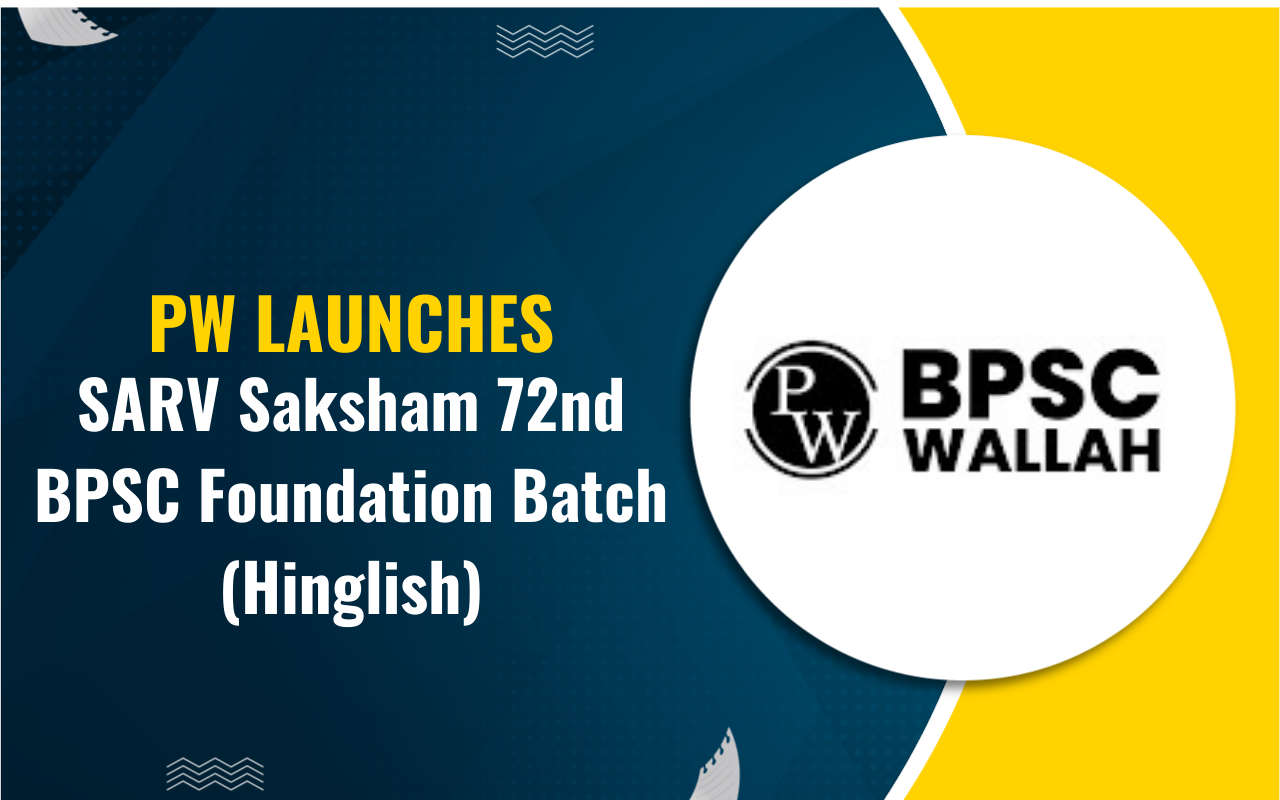BPSC Anthropology Syllabus 2026 is meticulously designed for aspirants targeting the Bihar Public Service Commission's Combined Competitive Examination, covering human evolution, socio-cultural aspects, and biological foundations essential for state civil services. This optional subject offers scoring potential due to its scientific approach and overlap with General Studies topics like society and environment. Understanding the exam pattern, Prelims (objective) and Mains (descriptive) along with strategic preparation tips ensures comprehensive readiness. Candidates can leverage previous years' papers and standard texts for consistent success.
BPSC Anthropology Syllabus 2026
The Prelims Anthropology syllabus emphasizes objective questions on socio-cultural anthropology, physical anthropology, archaeological findings, and Indian tribes, testing foundational concepts efficiently. In Mains, Paper I delves into human evolution, kinship, and economic organization, while Paper II focuses on tribal issues, development, and Bihar-specific ethnography, requiring analytical writing. Key topics remain consistent across cycles, making evergreen resources like Ember & Ember or Nadeem Hasnain ideal for long-term preparation. Regular answer writing practice aligns with the descriptive format for optimal performance.
BPSC Anthropology Syllabus 2026 Overview
The candidates can go through the BPSC Anthropology Syllabus mentioned in the table given below for Section I and Section II. The syllabus majorly covers General studies with topics including the Meaning and scope of Anthropology and its main branches: Social-Cultural Anthropology, Physical Anthropology, Archaeological Anthropology, Linguistic Anthropology, Applied Anthropology, Community and Social Institutions, Group and association; culture and civilization; band and tribe, etc.
|
BPSC Anthropology Syllabus 2026 Overview
|
|
Section
|
Key Topics Covered
|
Marks
|
|
Section A: Physical Anthropology
|
Meaning and scope, human evolution, primates classification, human genetics, race, forensic anthropology, applications in health and development
|
100
|
|
Section B: Socio-Cultural Anthropology
|
Culture characteristics, social structure, marriage, family, kinship, economic and political organization, religion, tribal society in Bihar, modernization impact
|
100
|
|
Section C: Indian Anthropology
|
Indian racial and linguistic distribution, social systems, tribal problems, cultural contact, tribal movements, constitutional provisions for SC/ST
|
100
|
BPSC Labor Anthropology Syllabus Section I
The Anthropology Syllabus is divided into three sections: Section I, Section II, and Section III. Every section is worth 100 points. Sections I and III must be completed. In Section II, candidates may offer either II-a or II-b. Applicants can review the BPSC Anthropology syllabus from the table given below.
| BPSC Anthropology Syllabus |
| Section |
Topics |
| Section 1 |
- The definition and range of anthropology, along with its five primary divisions, are as follows: (1) Physical Anthropology; (2) Archaeological Anthropology; (3) Linguistic Anthropology; and (4) Social-Cultural Anthropology.
- Institutions of the community and society, associations and groups, cultures and civilizations, bands and tribes.
- Universality and the family, the function of the family forms (unclear, extended, joint, etc.), incest and prohibited categories, preferential forms of marriage, marriage payments, and the family as the cornerstone of human society are all issues that need to be addressed. Changes and stability within the family. types of unions. Marriage and family in tribes with multiple wives.
- Categories for kinship include lineage and clan, kinship behavior, kinship words, alliance, habitation, and descent.
- Business Anthropology Market and trade; reciprocity and redistribution; barter and ceremonial exchange; meaning and extent; form of exchanger.
- Political anthropology: Significance and extent; The location and authority and the roles of rightful authority in various communities. Political systems that are stateless and stateless differ, in procedures for creating new states, laws, and justice systems in less complex societies.
- the beginnings of animatism, animism, and religion. The distinction between magic and religion. Taboo and Totemism.
- Anthropology's fieldwork and fieldwork traditions.
- Study of Indian tribes in Bihar, including the Oraon, Munda, Ho, Santhal, and Birhors, and their social, youth, political, and religious organizations.
|
BPSC Anthropology Syllabus 2026 Section II
The details of the BPSC Anthropology Syllabus Section II have been mentioned in the table given below. The candidates can learn about the topics and sub-topics here in this article to study efficiently for the upcoming examination.
| BPSC Anthropology Syllabus |
| Section |
Topics |
| Section II (a) |
- The basis for the organic evolution theory Lamarckism. Microevolution; Darwinism and the Synthetic theory; Human evolution: biological and cultural aspects.
- The Primate Order. a comparison of primates, with an emphasis on anthropoid apes and humans.
(a) Man's place in the animal kingdom: anthropoids, amphibia, reptiles, aves, mamalia, and categorization of mammalia. (b) A comparison of the anatomical traits that distinguish apes and humans. Ape intelligence and social behavior.
- Lemurids, Tamrioids, Propliopithecus, pliopithecids, Semnopithecus, Proconsul, Dryopithecus, Ramapithecus, Australopithecines, Australopithecus Africanus, Plesianthropus transvaalensis, Australopithecus, Prometheus, Paranthropus robustus, Homoertus, and Homosapiens are among the fossil evidence of human evolution.
- Definition of genetics The application of Mendelian concepts to human populations. the consequences of diet, hybridization, and inbreeding.
- (a) What constitutes a race? Race and nation; race and language groups; race and cultural practices; racism and perilous myths. (a) Human racial differentiation and the morphological, serological, and genetic underpinnings for racial classification, Environment, and heredity have a part in the emergence of races. (c) Skin color, hair, stature, head form, face form, nose, eye, and blood group kinds are the bass/criteria of racial classification.
- The three main races and their subraces, as well as the Caucasoids and their subgroups, are the variations of the modern races of man. ancestors of the Caucasoid race, Mongoloids and their subgroups, and Negroids. This study compares and contrasts the physical, genetic, and intellectual characteristics of the American Negros.
- India's racial classification: 1. Riseley's classification with his critiques of Haldol's classification Etymology of Eickstaedt.
|
| Section II (b) |
- Differentiating between technique, method, and methodology.
- Evolution is defined as both biological and sociocultural. the foundational ideas of evolutionism in the 19th century. The method of comparison. Current developments in the field of evolution studies.
- Diffusion and diffusionism—the historical ethnology of German-speaking ethnologists and American distributions. The critique of the comparative technique by Fraae Boas and diffusionists. The nature, intent, and strategies of social and cultural anthropology comparisons. Oscar Lewis, Sarana, Redcliffe-Brown, and Eggan.
- Basic personality patterns create and exemplify a personality. The applicability of anthropological methods to studies of national characters. In psychological anthropology, recent developments.
- Malinowski's input to social anthropology's functionalism. Both purpose and arrangement Brown-Redcliffe. Fortes and Nadel Firth.
- Structuralism in Social Anthropology and Linguistics Leach and Levistrauss saw social structure as a model. The structuralist approach.
- Standards & Principles. Values as an anthropological descriptive category. The values of anthropologists and the values derived from anthropology. Universal ideals and cultural relativism.
- Anthropology and social anthropology are distinct fields of study in science and humanities. A critical analysis of the argument in favor of unifying the methods used in the social and scientific sciences. The essence, reasoning, and independence of the anthropological fieldwork methodology.
- (a) L. H. Morgan, Edward Burnett Tylor, Herbert Spencer, Theories and Methods in Anthropology Evolution and Comparative Methods. Restrictions. (b) Particularism: Ruth Benedict, A. L. Kroeber, and Fraae Boas Abram Kardiner and Ralph Lintani. The particularistic approach's limitations. (c) The approach of structure and function. Pronislar Malinowski, Emile Durkheim, Leslie A. White, Evans Pritchard, A.R. Redcliffe Brown, and Levi Strous.
|
BPSC Anthropology Syllabus 2026 Section III
The details of the BPSC Anthropology Syllabus Section III have been mentioned in the table given below. The candidates can learn about the topics and sub-topics here in this article to study efficiently for the upcoming examination.
| BPSC Anthropology Syllabus |
| Section |
Topics |
| Section III |
- Dimensions of Indian culture during the Paleolithic, Mesolithic, Neolithic, and Protohistoric periods (Indus Civilization).
- Language and racial component distribution within the Indian population.
- The Indian social structure is based on the following: Joint Family, Varna, Ashram, Purushartha, and Caste.
- The expansion of anthropology in India. The unique contribution of anthropology to the study of the Indian population's tribal and peasant segments. The fundamental ideas are applied. both small and large traditions; Sacred complex Chialçation and universalization. Westernization and Sanskritization; the caste-tribe continuum of dominance. The complex of Nature, Man, and Spirit.
- Ethnographic profiles of the language, ethnic, and socioeconomic characteristics of Indian tribes. issues facing indigenous peoples The loss of land, debt, inadequate educational resources, migratory forests, changed agricultural practices, and unemployment among tribal populations as agricultural laborers. unique issues with food-collecting, hunting, and other mining tribes.
- issues with cross-cultural interactions; the effects of urbanization and industrialization on population decline; regionalism; and psychological and financial dissatisfaction.
- management of tribes through anthropology. The Scheduled Tribes Policies, Plans, Programs of Tribal Development, and Their Implementations are protected by the Constitution. The indigenous people's reaction to the actions taken by the government on their behalf. the various methods used to solve tribal issues. Anthropology's contribution to tribe development.
- The provisions of the Constitution concerning the Scheduled Castes. The socioeconomic issues and social impairments that the scheduled castes experienced.
|
BPSC Anthropology Exam Pattern 2026
The candidates can go through the BPSC Anthropology Exam Pattern 2026 from the table given below. The prelims exam includes general studies which is qualifying in nature for 100 marks. The main exam is for 900 marks with a duration of 3 hours per paper.
| BPSC Anthropology Exam Pattern 2026 |
| Subject |
Total Marks |
Time |
| General Hindi (Prelims) |
100 |
3 Hours |
| General Studies 1 |
300 |
3 Hours |
| General Studies 2 |
300 |
3 Hours |
| Optional Subject |
300 |
3 Hours |
| Total |
1000 |
3 Hours/Paper |
BPSC Anthropology 2026 Preparation Tips
Mastering BPSC Anthropology requires a blend of conceptual clarity, current affairs integration, and consistent practice to score high in both Prelims and Mains stages.
-
Build Strong Foundations: Start with standard books like P. Nath for Physical Anthropology and Nadeem Hasnain for Socio-Cultural aspects to cover core syllabus topics comprehensively.
-
Focus on Bihar-Specific Content: Study Bihar's tribal demographics, archaeological sites, and ethnographic surveys using state reports and BPSC previous papers for targeted preparation.
-
Practice Answer Writing: Write 10-15 markers daily, emphasizing diagrams (e.g., skeletal structures, kinship charts) and case studies to improve Mains descriptive skills.
-
Integrate Current Affairs: Link syllabus topics like tribal development with recent schemes (e.g., Eklavya Schools) from Yojana magazine for analytical edge.
-
Mock Tests & Revision: Take weekly Prelims mocks and revise notes in 3-month cycles to retain facts like human evolution timelines and cultural theories.










